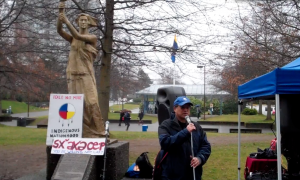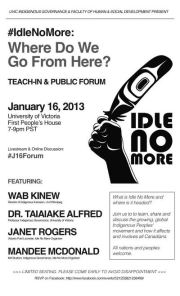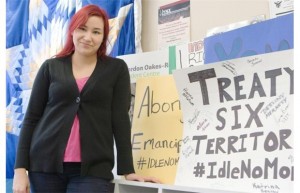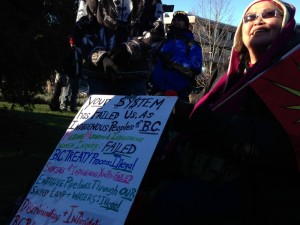TAKE BACK THE NIGHT
UBC RALLY AND MARCH SPEAK OUT
WEDNESDAY OCTOBER 30, 2013
5 PM
University of British Columbia, Vancouver
Unceded Coast Salish Territories
We will march to specific locations on campus, briefly state how the location relates to persisting rape culture on campus (with reference to its colonial history), and have an ongoing open mic for people to speak about their experiences. We march to heal, resist, and speak out (side note: if you have knowledge about the histories of these locations or would want to speak to them please contact us, we need your help here).
If you are unsure of speaking at the march/rally about your experiences with rape culture at UBC, PLEASE understand that you will be supported and heard. You will not be standing alone at any point, this march/rally is for those of you who are constantly silenced and harmed at this school. Take Back the Night is for you to reclaim voice in spaces that keep trying to suppress it, spaces keeping you unsafe.
If you want to speak at the march/
This TBTN event places great emphasis on history—both personal and societal. The march/rally will be a highly emotional and potentially triggering event; we will have crisis relief support for those who need it.
*very* rough schedule based on suggested locations (still working on security and accessibility):
5:00 Museum of Anthropology, Opening
5:40 Place Vanier Residence
6:10 Henry Angus Building (Sauder)
6:50 Fraternity Village
7:15 RCMP Campus Headquarters
7:40 Thunderbird Sports Centre
8:00 Engineering
8:25 Allard Hall (Law Building), Closing
8:30 Debriefing Space and Discussion, SUB 212, for female and woman identified people
UBC, CAMPUS SECURITY, AND THE RCMP: STOP BLAMING THE VICTIMS AND SURVIVORS OF SEXUAL ASSAULT!
Read More: Take Back the Night Rally at UBC in Protest of Six Recent Sexual Assaults on Vancouver Campus

 Follow
Follow



